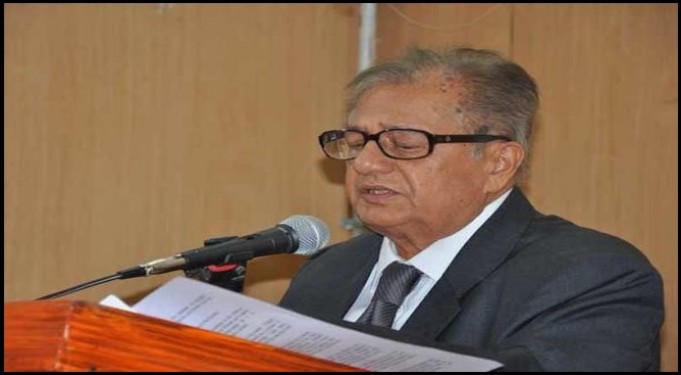Remembering Ramamohan Rao
I was surprised to get a phone call from Smita Prakash of the ANI one evening in 2016 January asking me to be a panelist for her father Ramamohan Rao’s book release “‘Conflict Communication – Chronicles of a Communicator”. I wondered why Rao thought of me, but then that was Ramamohan Rao. He never forgot his friends. Needless to say that the function was attended by many of his friends, colleagues, diplomats and politicians because he had kept up his relationship with them all even after his retirement and the room was packed to capacity.
Rao who passed away on May 13 this year was a multi-faceted personality. He was a public relations expert, officer in the government of India, a political observer, a writer and also a social worker. Being a proud Kannadiga, he played an active role in the activities of Delhi Karnataka Sangha and held many important positions there.
I had interacted with many Principal Information Officers (PIOs) during my 40 years of journalism but Rao stood out among them. I had known him since I had moved to Delhi from Hyderabad in 1984. Initially I did not know many people in Delhi those days but he turned out to be a dependable source, a friend and a guide. Any time I went to him for confirmation of any news he would promptly call up top officials if he were not sure of the facts.
Rao’s admirable quality was his availability to even the juniormost reporters at any time. He had given me many scoops when I was working for the UNI. As the top spokesman of the Government of India, he was unparalleled in his work. His best quality was that not only he knew the bureaucracy well but also the nuances of the political intricacies. His bosses depended on him as he used to give them feedback on sensitive issues.
In fact, in my opinion, he was the last of the PIOs who was powerful enough to influence the Prime Ministers he had served and he had been the PIO to four PMs– Rajiv Gandhi, V.P. Singh, Chandrashekhar and P.V. Narasimha Rao. All of them held him in high esteem. The office of the PIO has lost its importance since Rao’s days in Shastri Bhavan.
Mr Rao’s book is an inspiration for budding journalists and those in the Indian Information Service as he discusses in great detail how sensitive government matters including that of the defence ministry should be communicated to the media. Even those who did not know him could get a glimpse of his qualities by reading this book in which he narrates how as a young lad he got a rail ticket from his cousin to travel to Delhi which opened up vistas. He landed a job in the Information Service as an apprentice. Ramamohan Rao worked in different roles, from a junior officer in RAW to becoming the PIO and then the Press Adviser to the Prime Minister. In his five decades of professional work, he had a ringside view of the government as well as the media as he had sat in the plush offices of the DPR defence and the Prime Minister’s office, but there were also times when he worked from a makeshift office in the Sainik rest room at Amritsar.
He had many anecdotes to share with the scribes and his junior colleagues. He was very proud of the role he played as a communicator during the Bangladesh war. He often used to narrate how he released one of the old pictures taken during an exercise of the para brigade showing paratroopers getting para dropped in large numbers during the war. The newspapers front- paged the pictures next day. He did not regret this ingenuity in using the pictures though he was chastised for it later.
Yet another incident I remember was when he got into trouble for breaking the news of Babu Jagjivan Ram’s death prematurely to Rajiv Gandhi. Rajiv was on his way abroad and the news was given to him at the airport. But Rao came out of it because of the goodwill and support he had with the media and Rajiv Gandhi also realised that it was a genuine mistake.
Even after he retired as the Press Adviser to the Prime Ministers Rao continued to be in office as the adviser to the Jammu and Kashmir government when it was going through its worst period affected by the militancy. Many times I had gone to him to get a perspective about the ground level situation in Jammu and Kashmir and I was never disappointed.
Rao continued to work till the last day. He was a mentor to many young journalists and was regular in his office at the ANI till the end. His columns were read with interest by his readers who will miss him now. People who knew him will not forget him easily because of his many qualities.
Kalyani Shankar was formerly Political Editor of Hindustan Times and also its Washington Bureau chief. She has written four books – ‘Gods of Power’, ‘India and the United States: Politics of the Sixties’, ‘Nixon Indira and India’, and ‘Pandora's Daughters’. She is on the Lok Sabha TV Programme Advisory committee and the governing body of the Indian Institute of Mass Communication.







